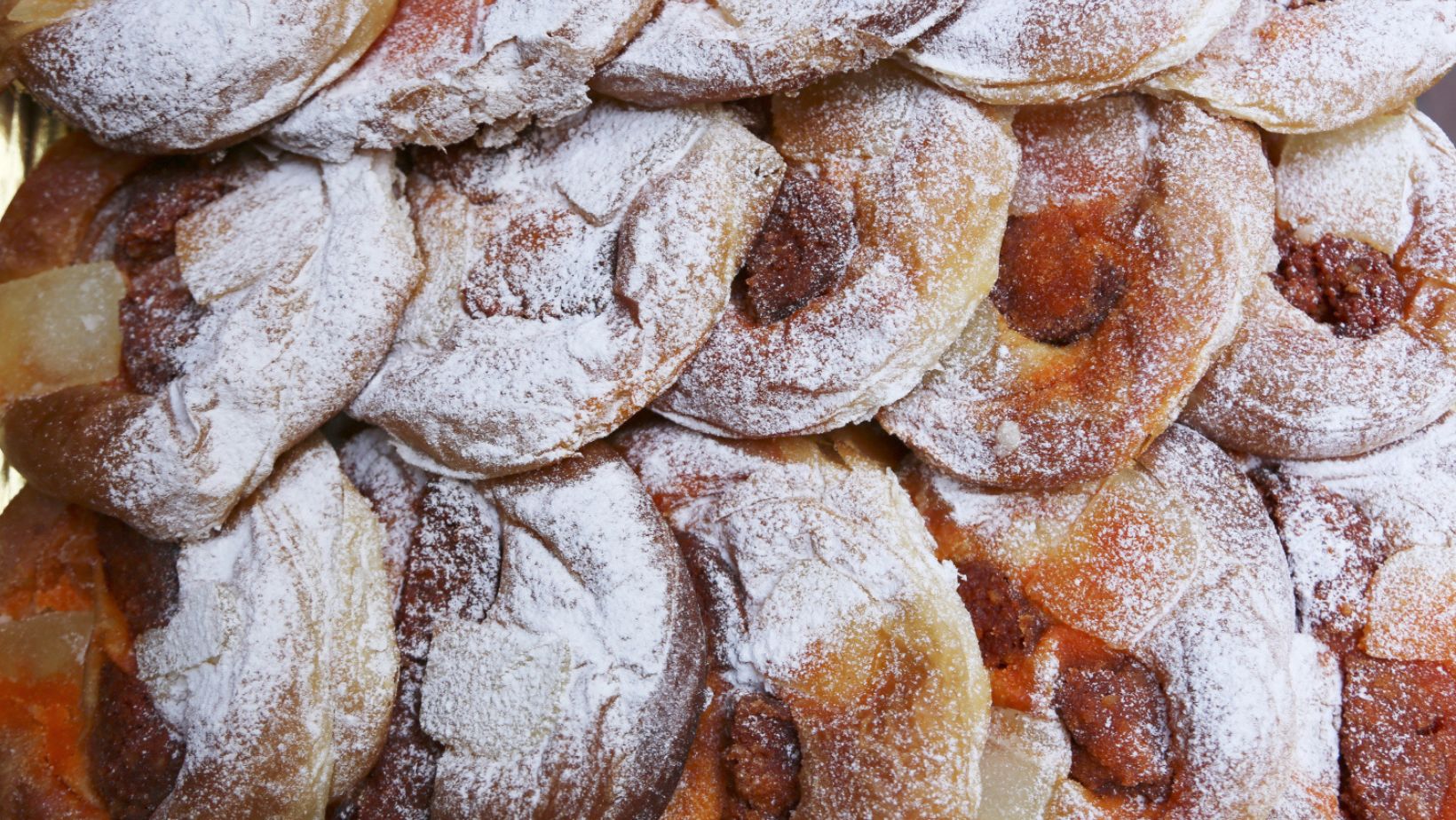A Ca’n Joan de S’Aigo we have always considered the ensaimada one of Mallorca’s most important emblems —a dough worked with care that contains history, memory and the island’s flavour. Among its many variations, the ensaimada de tallades holds a special place on the local palate: it’s the perfect balance of sweet and savoury that many Mallorcans expect on certain dates and that, at our counters, is never missing for those who seek it.
Origins: the ensaimada and the emergence of the “tallades”
The Mallorcan ensaimada has documented references since the 17th century and, over the centuries, became a culinary symbol of the island. Its basic recipe —flour, eggs, sugar, sourdough starter and saim (pork lard)— has remained essentially unchanged, and its artisanal character demands skilled hands. The variety known as tallades (often popularly called “tajadas”) consists of an ensaïmada covered or decorated with sobrassada and cabell d’àngel (or pumpkin jam), creating that sweet-and-savoury contrast that makes it so beloved in Mallorca, especially during Carnival season.
Why is the ensaimada de tallades so prized by locals?
The answer lies in three simple keys: memory, contrast and community. The tallada evokes popular celebrations (Carnival and local festivals) where a blend of flavours told stories of thrift and feasting. The contrast between the saïm and the salty note of the sobrassada, together with the sweetness of the cabell d’àngel, creates a tasting experience that Palmeros (people of Palma) have consecrated over time. In addition, because of its often large, shareable format, the ensaïmada de tallades is the perfect excuse to gather and talk.
Our version at Ca’n Joan de S’Aigo: craft and respect for tradition
At Ca’n Joan de S’Aigo we respect the essence of the ensaïmada and its variants. We don’t invent what is already tradition; we continue it. Our process begins with a sourdough starter worked patiently, a meticulous rolling/stretching and resting times that allow aroma and structure to develop. The tallades we make combine a classic-dough ensaimada with a selection of high-quality sobrassada and the finishing cabell d’àngel, taking care with proportions so that neither the filling nor the topping hide the delicacy of the dough. Preserving these artisanal methods is essential: an authentic ensaïmada requires time and expert hands.
Texture and flavour: what sets the ensaimada de tallades apart
What differentiates the ensaimada de tallades from the plain version are concrete subtleties: the slight aroma of saim that defines the dough, the light, airy crumb and an edge that can present a slight crispness if the baking and stretching are done correctly. On top of that, the sobrassada adds unctuousness and saltiness; the cabell d’àngel brings a fruity note that balances the profile. The result is a complex pastry, with layers of texture and a flavour that has made it irresistible.
A bite that tells the story of Mallorca
The ensaimada de tallades is an example of how Mallorcan pastry adapts without losing identity. At Ca’n Joan de S’Aigo we treat it with the respect it deserves: as a legacy we tend to every day in our bakeries and share at our tables with customers and visitors who seek authenticity. If you haven’t tried it yet, we invite you to discover why so many locals consider it one of their favourites.



